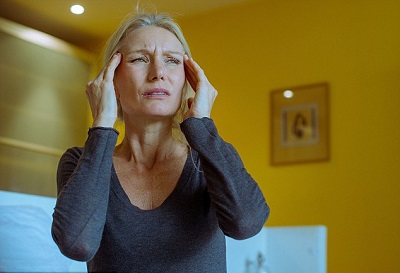Taking a daily vitamin D supplement could cut the number of migraine attacks dramatically, according to the results of a new trial.
Vitamin D is dubbed ‘the sunshine vitamin’ because it is produced in the skin after exposure to sunlight, according to Daily Mail.
The treatment nearly halved the attacks patients suffered during a six-month trial — with those taking the daily supplement (and no other medication) going from having migraines more than six days a month to just three.
The ‘sunshine’ pill is thought to work by combatting inflammation in the tiny blood vessels in the brain that can play a part in the painful episodes.
Some studies suggest it keeps the endothelium — the layer of cells that coats the inside of all blood vessels — smooth and pliable, allowing blood to flow easily.
Over-the-counter painkillers, such as paracetamol and ibuprofen, can help mild attacks. In more severe cases, patients are prescribed triptans, which work by restoring the chemical balance in the brain that is disrupted by migraines.
These drugs all tackle the pain once a migraine sets in and, for years, were the only option.
Vitamin D capsules, which cost as little as 4p each, could be a cheaper and more convenient alternative, according to the latest study.
The scientists, from Aalborg University in Denmark, undertook the trial because previous investigations had suggested that migraine sufferers were more likely to be deficient in vitamin D than non-sufferers.
The human body gets most of its vitamin D needs through exposure to sunlight, although it is also found in foods such as oily fish, cheese and eggs. The vitamin plays a vital role in helping the body to absorb calcium from the diet, to build healthy bones.
Some studies suggest it could also protect against heart disease and even cancer.
The Danish team recruited 48 migraine sufferers — half of them took 100mg of vitamin D, while half took a placebo pill, every day for six months.
Patients documented the frequency of their migraine attacks, as well as the severity of their symptoms. The results showed that attacks were almost halved in those on the ‘sunshine vitamin’, while the placebo group saw barely any change.
But there was no improvement in the severity of the symptoms, which suggests that, although the vitamin may prevent migraines, it does not ease the pain when they do occur.
The researchers are now planning larger studies to confirm the findings.
Dr Andy Dowson, a headache specialist at King’s College Hospital in London, said the discovery was ‘very promising’.
‘Larger studies are needed to verify the results, but this is significant,’ he added.
‘Vitamin D supplements are cheap as chips and safe to take, so it makes sense to investigate them further.’
N.H.Kh

